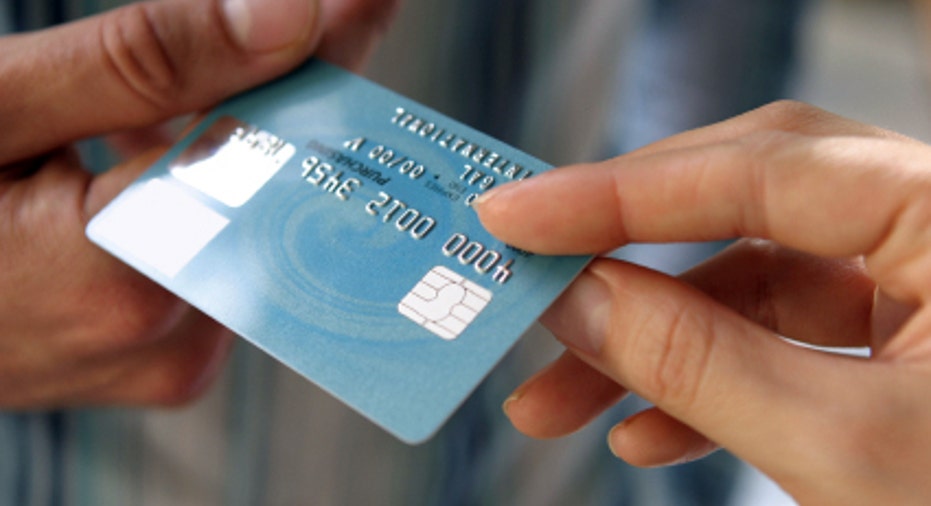Can You Make Money Off Your Credit Card?

Can you make money off of your credit card? For years, I didn't realize that you could.
When I was first introduced to personal banking products such as credit cards and savings accounts decades ago, I spent some idle time wondering if the seemingly tiny percentages called "interest rates" could amount to any kind of real money. I was sort of a math kid, so I worked out that the 1.59% APY on the $50 I'd just deposited with my neighborhood bank branch would earn me 79-1/2 cents if I let it sit unspent in my account for a full year. Oh well, I thought, maybe they'll round up that half-penny and I'll get a cool $0.80.
It was a surprise to me to learn, much later, that sharp-eyed, enterprising customers have figured out how to use credit cards to turn earned interest into significant supplemental income. With a certain type of judicious money management, known in finance circles as credit card arbitrage, zero-interest credit cards can be leveraged into profitable investments.
How credit card arbitrage works
To begin credit card arbitrage, you need a standard credit card account, a zero-interest balance transfer offer and a high-interest savings or rewards checking account. The procedure is fairly simple:
- Collect a cash advance from a standard credit card account
- Transfer the credit balance to one or more credit cards with no balance transfer fee and no interest on the transferred balance during an introductory period
- Deposit the cash from the advance in the high-interest savings or checking account
- Make minimum payments on the account into which you made the 0% balance transfer
- Pay off the 0% credit cards in full before the introductory balance transfer offers expire
- Pocket the interest earned
Slate from Chase: 0% fee, 0% APR on balance transfers
One of the most important ingredients of credit card arbitrage is a credit account that offers very low or zero APR for an introductory period. For a limited time, the Slatecard from Chase offers qualified borrowers 15 months of 0% APR on debt transferred from other credit card accounts, with a 0% balance transfer fee instead of the typical 3 to 5%.
Slate offers you more than just a 0% balance transfer. You also get access to their Blueprint options, which are the following repayment and reporting tools:
- Full Pay: Choose from several categories of everyday purchases and budget an amount per month to pay before it can be added to your borrowed principal.
- Split: Design plans to help you pay off large purchases sooner than if you just pay the minimum balance. You set a number of months for paying off the purchase or specify a monthly payment.
- Finish It: Similar to the Split option, but for your whole balance. Organize a repayment plan based on per-payment amounts or a desired number of payments.
- Track It: Keep an eye on your spending history and progress toward spending goals.
Other services Slate provides include built-in fraud protection and a $75 statement credit earned after spending $300 on purchases within the first three months.
Is credit card arbitrage right for you?
Though the concept behind credit card arbitrage is straightforward, this process requires close attention to detail. It may also take a bit of research to find strong balance transfer credit card offers or checking and savings accounts with a yield high enough to make this arbitrage worth your time and effort.
Ron Nawrocki is a real estate fund manager and host of the Wealth DNA radio show who makes about $2,000 annually from arbitrage deals. He says there are advantages to the process that stretch beyond supplementary income.
"(Arbitrage) will negatively affect your credit score temporarily," Nawrocki says, "but when you pay off the 0% balance transfer cards, your credit score goes higher than before since you're exercising your credit lines."
Nawrocki goes on to say that the key factor in these deals is investment discipline. Making everyday purchases with the money you've invested in arbitrage can sink the whole operation.
Credit expert John Ulzheimer, president of Consumer Education at SmartCredit.com, counsels against this kind of arbitrage. Says Ulzheimer, "0% balance transfer offers should be used to buy time so that the debtor can aggressively attack (a high-interest) balance and pay the card off," rather than try and earn extra money.
Ultimately, unless you know exactly what you're doing and have the discipline to avoid any missteps, you might be better served using Slate and other credit card promotional offers as tools to take the edge off of existing debt.
This content is not provided or commissioned by any company mentioned in this post. Opinions expressed here are author's alone and have not been reviewed, approved or otherwise endorsed by any such company. This site is compensated by companies referenced in the blog posts through advertising, affiliate programs or otherwise.
The original article can be found at MoneyBlueBook.com:Can you make money off your credit card?



















